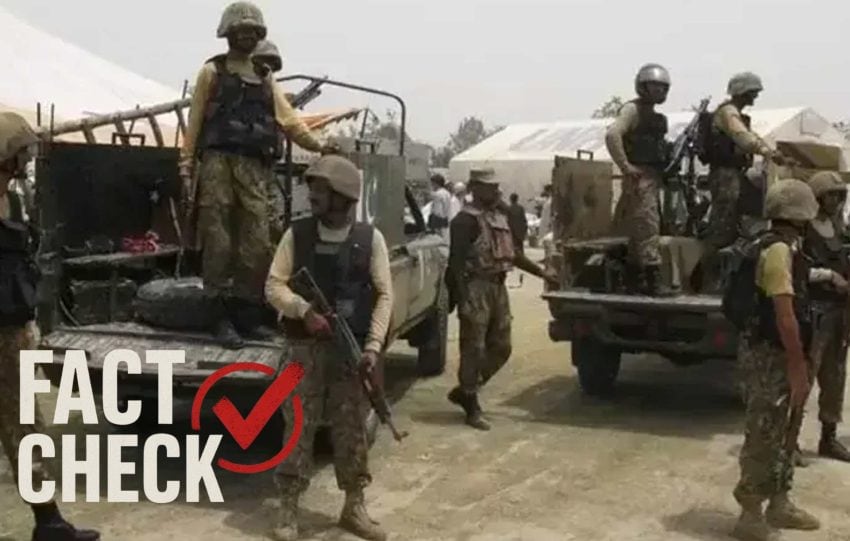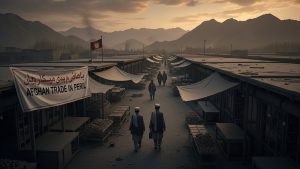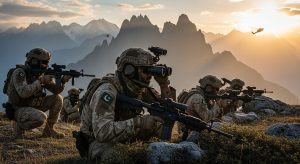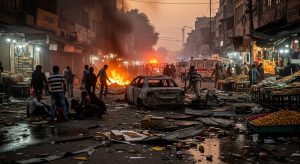Social media posts circulated on Tuesday claimed that the Tehreek-e-Taliban Pakistan (TTP) had launched multiple coordinated attacks across Khyber Pakhtunkhwa and Waziristan — specifically naming incidents in Tank (Akbar Khel), South Waziristan (Suri Kayi, Zarmelni, Tiarza), Bannu (Akakhel Khawangi, Do Road Kaki), and North Waziristan (Datakhail). The posts alleged that 22 Pakistani soldiers were killed in these assaults.
Some versions of the claim also identified an individual, “Mohammad Faheem,” said to be a former Frontier Corps member who had defected to the TTP, suggesting insider involvement in the attacks.
The posts were widely shared across various OSINT and militant-linked social media channels, presented as breaking news with high casualty figures and multiple simultaneous operations.
Reality
While there is evidence that the TTP has recently intensified its activities in the region, no authoritative Pakistani source — including the military’s media wing or major national newspapers — has confirmed the full set of incidents listed in these viral claims or the total of 22 soldiers killed “yesterday.”
Pakistan’s Inter-Services Public Relations (ISPR) routinely publishes casualty reports and operational updates. As of the time of this assessment, no statement from ISPR corroborates the number, timing, or full scope of attacks claimed in these posts.
Social media chatter and pro-TTP pages have a long history of inflating casualty figures and amplifying partial or unverified information. In many past incidents, TTP-affiliated channels have reported much higher figures than those later verified by official sources.
The “22 killed” figure likely originates from such unverified social and militant-linked claims rather than confirmed battlefield reports.
What’s Confirmed and What’s Not
* Confirmed: TTP activity and clashes have occurred across Khyber Pakhtunkhwa and the former tribal districts in recent weeks. Pakistani forces have sustained casualties in multiple incidents, as acknowledged in earlier ISPR briefings this month.
* Unconfirmed: The exact list of locations (Tank, Bannu, South and North Waziristan) allegedly attacked in one coordinated wave, as well as the total of “22 soldiers killed” on a single day, remain unverified by any official outlet.
* Unverified: The personal detail about “Mohammad Faheem,” said to be an ex-Frontier Corps member turned militant, does not appear in any credible news report or official statement. Such recruitment narratives often circulate on militant channels without supporting evidence.
Independent observers familiar with Pakistan’s counterterrorism landscape note that TTP propaganda often seeks to exaggerate success and demoralize public perception. These tactics exploit the communication gap that exists before official verification arrives.
The Context
TTP violence has undeniably risen in 2025, with frequent attacks targeting security forces in South and North Waziristan, Tank, Dera Ismail Khan, and other districts. Each week brings reports of IED explosions, gun battles, and martyrdoms among Pakistan’s security personnel.
However, claims that frame these attacks as part of one single coordinated operation with precise, high casualty numbers often prove unreliable when checked against ISPR or provincial police updates.
This reflects a broader pattern in Pakistan’s information environment: militants move fast, while official confirmation takes time. In that gap, rumor and fear find room to grow.
Verdict
The viral claim that the TTP killed 22 Pakistani soldiers in multiple coordinated attacks “yesterday” across KP and Waziristan is partly unverified and should be treated with caution.
While clashes between Pakistani forces and TTP militants continue, there is no confirmed evidence from official or reputable sources validating the entire list of incidents or the specific death toll of 22 soldiers.
Until the military or credible national outlets issue an official statement, this remains an unverified claim amplified through militant and social media channels.
In conflict reporting, patience and verification matter. In Pakistan’s ongoing fight against militancy, truth is not just about what happens on the battlefield — it’s about who controls the story once it’s told.














